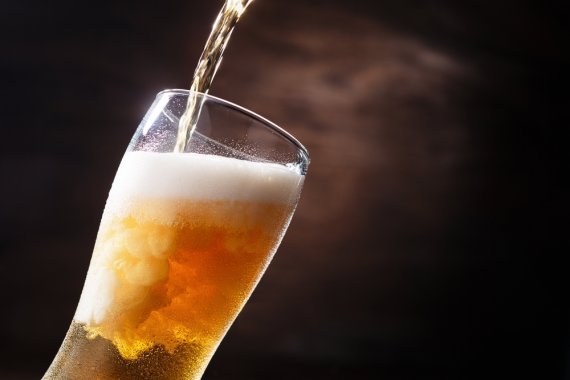© Shutterstock
‘We know that alcohol has an effect on the reward system in our brain’, says Paul Smeets, researcher in Human Nutrition. ‘Our study shows that the taste of beer can do the same. This had not been investigated previously.’ The research was published last month in the journal Chemical Senses.
Pavlovian response
The study was performed on 21 young men aged 18 to 35 who were regular beer drinkers. Smeets and his colleagues investigated how the brain reacted when the participants expected to ingest alcohol. They showed the participants the words ‘beer’ or ‘control’ and studied the brain activity in the MRI scanner. While lying in the scanner, the participants were given sips of beer or carbonated water (control) through different tubes.
This suggests that it is mainly the taste of beer that creates this effect.
Paul Smeets, researcher Human Nutrition
Two kinds of beer were used in the study: non-alcoholic beer and the same beer with five percent ethanol added to it. The participants only knew they were given “beer”. Both beers had the same effect on the activity of the reward system in the brain. ‘This suggests that it is mainly the taste of beer that creates this effect. Probably because the taste of beer and the suggestion of drinking beer are associated with the rewarding effect of alcohol. The well-known Pavlovian response.’
The taste of the beers was basically the same. Smeets: ‘Ethanol does have a somewhat sweet taste, but we corrected for that in the analysis.’ The alcoholic beer did stimulate the taste regions of the brain a bit more after swallowing. ‘That is because ethanol is mainly perceived after swallowing.’
Context
Smeets does have a few side notes regarding the results. The participants thought the test beer was mediocre in taste, for example. ‘That makes it more difficult to measure the effect of reward of the beer properly’, says Smeets. ‘Because it was not experienced as very rewarding in the first place.’
And of course, one does not usually drink beer through a tube while in an MRI scanner. The entire context plays a role in creating an effect of reward. Smeets: ‘It would appear like it doesn’t matter whether there’s alcohol in the beer, as long as we don’t know what we’re drinking. But it should also be studied under circumstances in which people do know what kind of beer they are drinking.’ Because that too can influence the expectation patterns and the effect of reward.
Weekly updates about studying and working at WUR? Subscribe to thenewsletternow!
Additional reading:
Brewing fruity light beers using a different kind of yeast
The wonderful world of taste
‘There’s no such thing as a healthy glass of beer or wine’

